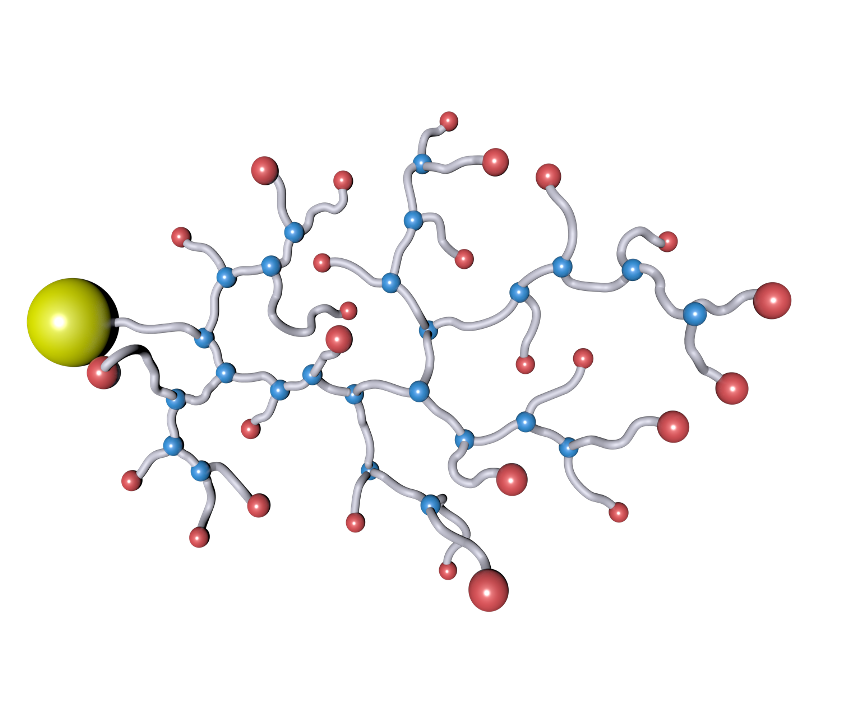Sustainable Polymers: Eco-Friendly Solutions for the Future
Sustainable Polymers: Eco-Friendly Solutions for the Future
Blog Article
Discovering the Varied Applications and Advantages of Polymers in Different Industries
Polymers, with their varied array of buildings and functionalities, have ended up being important in various industries, each reaping distinct take advantage of their application. Polymers. From enhancing safety and performance in the automobile sector to reinventing clinical devices in the health care industry, polymers play a critical role. Moreover, their environmentally friendly nature is altering the landscape of sustainability methods. As we look into the midsts of polymers in electronics, we discover innovative advancements, while their architectural integrity transforms the world of construction and facilities. The prevalent impact of polymers throughout markets is a testament to their versatility and adaptability, forming the future of many industries.
Automotive Sector Applications
Polymers play a crucial function in boosting the efficiency and durability of numerous elements within the vehicle sector. One popular usage of polymers in the automotive industry is in the production of lightweight components.

Health Care Market Advantages
In numerous medical care applications, the advantages of making use of polymers are widely acknowledged for their diverse variety of helpful residential or commercial properties. Polymers play a crucial function in the healthcare industry due to their flexibility, biocompatibility, and cost-effectiveness. Among the key benefits of polymers in health care is their capacity to be customized to particular requirements, such as adaptability, durability, and biodegradability, making them excellent for a vast array of clinical applications.
Polymer-based materials are thoroughly made use of in clinical devices, such as catheters, implants, prosthetics, and medication distribution systems, because of their biocompatibility and capacity to resemble all-natural cells. These products can lower the threat of allergies or denials, boosting individual safety and security and end results. In addition, polymers are lightweight, making them suitable for wearable clinical gadgets and guaranteeing patient convenience.
Additionally, polymers enable the advancement of ingenious therapy techniques, such as hydrogels for cells design and nanocomposites for targeted medicine shipment. Their convenience of processing and sanitation makes them important for keeping high standards of health in medical care setups. On the whole, the diverse benefits of polymers add significantly to developments in medical modern technology and client care.
Ecological Benefits of Polymers

Furthermore, polymers can add to power savings because of their light-weight nature. In sectors such as i was reading this transport, light-weight polymer materials can help in reducing gas intake and greenhouse gas exhausts. In addition, polymers can enable the development of energy-efficient products such as insulation materials that improve energy conservation in buildings.
Furthermore, polymers play a crucial role in decreasing water pollution. For instance, using polymer-based filtering systems can efficiently eliminate pollutants and contaminants from wastewater, safeguarding water resources and environments. Overall, the ecological advantages of polymers make them important properties in advertising sustainability and eco-friendly techniques throughout different industries.
Polymers in Electronic Devices and Innovation
Thinking about the boosting demand for innovative and lasting services in modern-day markets, the integration of advanced polymer modern technologies in the realm of electronic devices and innovation has actually emerged as a crucial approach for driving effectiveness and performance. Polymers have reinvented the electronics sector by enabling the manufacturing of lighter, more flexible, and sturdy digital gadgets. From smartphones to clinical tools, polymers play a crucial duty in enhancing item design and capability.
One significant benefit of polymers in electronic devices is their shielding residential or commercial properties, which aid safeguard fragile digital components from ecological factors and electric interference. Furthermore, polymers are essential in the advancement of adaptable displays, wearable innovation, and published electronics, offering countless possibilities for developing smart and interconnected gadgets.
In addition, the use of polymers in digital packaging has caused advancements in miniaturization and thermal management, enhancing the general performance and dependability of digital systems. As modern technology proceeds link to evolve, the adaptability and flexibility of polymers will certainly drive even more innovation in the electronics sector, forming the future of technology.
Role of Polymers in Building and Facilities
Polymers supply various advantages in the building sector due to their convenience, sturdiness, and cost-effectiveness. One vital function of polymers in construction is their usage in finishes and sealants, providing defense against environmental aspects such as dampness, UV radiation, and corrosion.
Additionally, polymers play an essential duty in sustainable construction techniques by allowing the growth of energy-efficient structures. Shielding materials made from polymers aid regulate interior temperatures, lowering the need for home heating and cooling systems and eventually lowering energy consumption. The usage of polymer-based composites in facilities tasks such as bridges and roads improves their long life and reduces upkeep prices. In general, the unification of polymers in construction and infrastructure displays their significant influence on modern-day engineering methods.
Final Thought
To conclude, polymers play a crucial role in various industries such as automobile, medical care, environmental, electronics, and construction. Their flexible buildings make them beneficial in developing innovative services and products. From improving fuel efficiency in vehicles to enhancing clinical devices, polymers provide various advantages. Additionally, their effect on decreasing waste and promoting sustainability highlights their significance in modern applications. The widespread use polymers shows their considerable contribution to advancing modern technology and boosting top quality of life.
Report this page